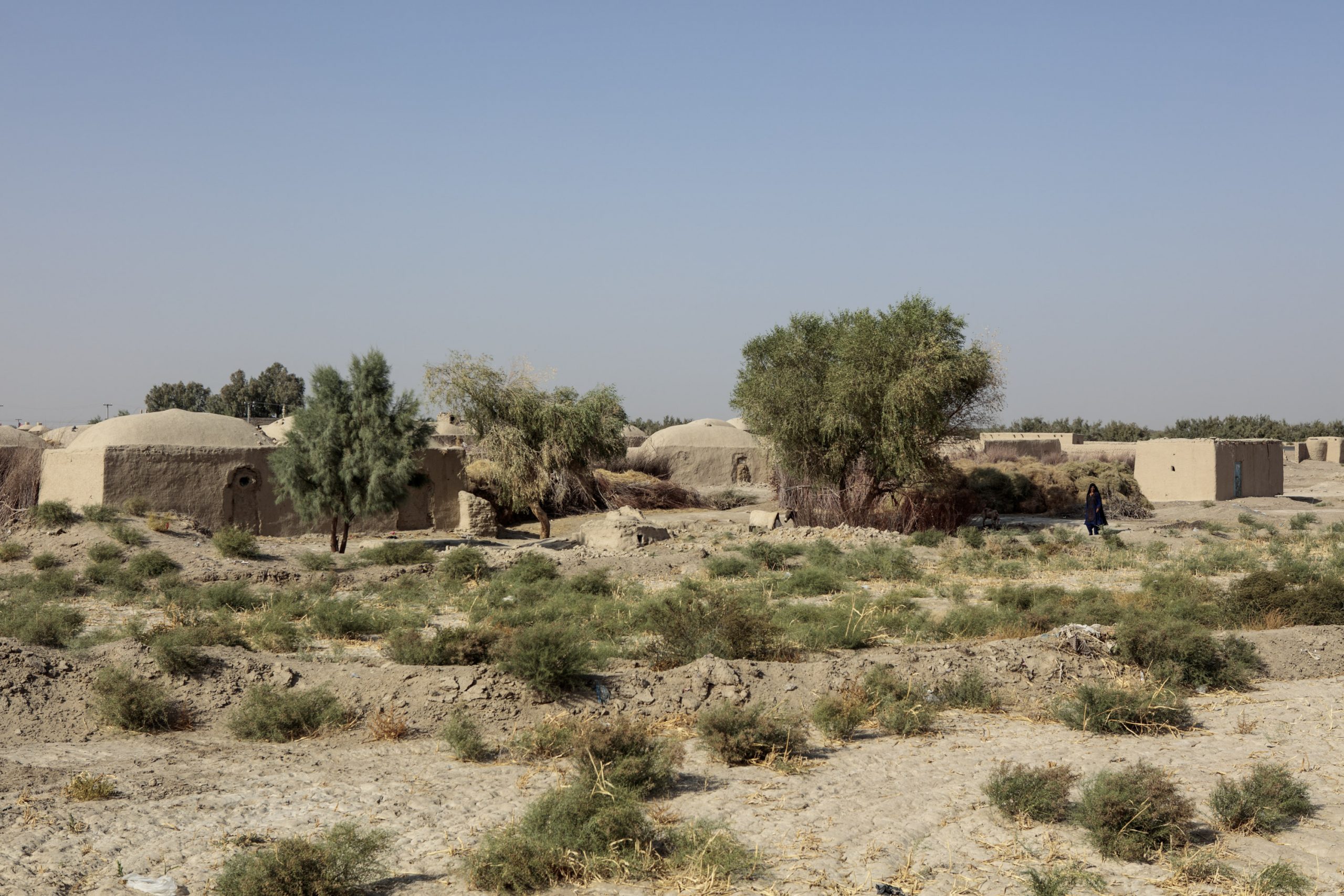A baby girl is born.
Her parents are joyful, yet nervous. They call her Hooriyah*.
It’s February 2019 in a remote village in Kang district, located in the Nimroz province of southwestern Afghanistan. Drought has ravaged the area for more than 18 months, leaving food and water scarce.
The majority of people in Nimroz and neighbouring Farah province are dependent on farming. The drought has led to no cultivation of crops for the past two seasons. The rivers are dry and water points are exhausted, leaving limited access to clean drinking water and little water to spare for irrigation. With the decimation of the agricultural sector, many have lost their source of income. Shortages of food are causing high levels of malnutrition, especially in women and children.
Hooriyah’s parents, Aziza* and Jhamil*, have been married for seven years. Hooriyah is their first surviving child. Jhamil is a farmer, but the prolonged drought has left him jobless. The increased financial hardship he has faced has caused both his mental and physical health to deteriorate, and the family has struggled to meet their basic food needs.
During this period, Aziza gave birth to two children. Both died due to malnutrition. Her own levels of nutrition were so poor that she was unable to breastfeed her newborn babies.
This time it’s different.
Aziza’s family received food assistance from Relief International for three months leading up to the birth of Hooriyah. The food parcels contained essential items such as fortified wheat flour, vegetable oil, rice, beans, chickpeas, and iodized salt. Aziza was able to nurse Hooriyah, who is in turn a normal, healthy weight.
“The food gave me sufficient nutrition to breastfeed Hooriyah. After the loss of my two newborns because of sickness and weight loss, the assistance we received from Relief International saved the life of my child,” shares Aziza.
In Afghanistan, drought caused more displacement than conflict in 2018
Hooriyah and her family are not alone. There are still over two million Afghans affected by the 2018 drought that drove people from their homes.
Entire families have migrated, and villages have emptied due to lack of drinking water and food. In some areas, over 40% of the population have left, with many fleeing across borders to Iran and Pakistan.
The risks are huge for those forced to migrate. Many have crossed borders illegally through traffickers, while others have headed to overcrowded cities where they lack family networks. But with a year-on-year decrease in rainfall of 70%, the drought continues to cause suffering for those who have stayed behind.
Relief International has worked in Afghanistan since 2001. Over the last decade, our programs in Nimroz and Farah have provided shelter and enhanced food security and livelihoods. We were one of the first organizations to respond to the drought when early signs appeared in late 2017. Since then, we have scaled up our work, with teams working seven days a week to provide clean water and food to communities most in need of a lifeline.
Simple Interventions Save Lives
One of our staff members joined Relief International in 2016, and has worked with vulnerable Afghan populations on both sides of the border with Iran. She says our response here has been critical since there isn’t a strong presence of other international organisations in these areas.
“Our emergency relief program in Nimroz and Farah provinces have saved many lives, particularly those who are children,” she explains. “We have been providing urgently needed food and trucking in clean drinking water. We’ve also been working with communities to improve hygiene levels. Our interventions have been effective in stemming the tide of dangerous migration – allowing people to stay in their homes.”
Relief International’s drought response in Nimroz and Farah has provided clean water and sanitation to 96 villages, reaching over 18,000 people. Every member of these villages receives 15 liters of clean water every day. In addition to trucking in water, we provided water storage containers to each family so they can safely preserve their limited resources.
We’ve also been working with communities to run awareness workshops on water management, storage, and sanitation. The goal of these targeted messages is to prevent the spread of diseases. Local participation, particularly by women, has been essential to the success of the outreach, with more than 5,000 people participating in the workshops.
To help prevent malnutrition, we have provided critical food supplies to 3,000 of the provinces’ most vulnerable households. More than two million women are widowed due to the conflict in Afghanistan, and many of our food parcels go to female-headed households as well as to children and people with disabilities.
Giving Families a Reason to Stay
Relief International’s response helped saved lives and provided much-needed nutrition – especially to children. Cases of water-related diseases have also been reduced. Access to food and clean water has provided a reason to stay for many, reducing numbers by which families are embarking on dangerous migrations in search of relief.
To provide longer-term solutions to this drought and the ones that will inevitably follow, we built new wells and rehabilitated the ones that had run dry across Chakhansoor, Kang, and Charburjak districts in Nimroz province. A large-scale chlorination campaign treats water collected from new and refurbished wells to stop harmful bacteria from contaminating the villages’ water supply.
We are also working with communities to boost alternative livelihoods for those who have not migrated. These programs focus on economic opportunities for women and on occupations that do not depend on agriculture, such as weaving and handicrafts.
“Afghan women like me must come forward and help in the development of the country. Local participation, particularly by women, may be the key to revitalizing drought-prone areas of the country,” says Benesh*, a participant in Relief International’s economic opportunity programming.
*Names changed to protect identity.
